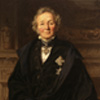Sources of the Self: Scholarly Personae as Repertoires of Scholarly Selfhood
DOI:
https://doi.org/10.18352/bmgn-lchr.10268Keywords:
Scholarly Persona, History and Philosophy of Science, HistoriographyAbstract
The concept of ‘scholarly personae’ emerged about a decade ago in the history of science. Since then it has increasingly been used both inside and outside the historical discipline. This article examines where this interest comes from, what shapes it takes, and what types of research it stimulates. The thesis advanced in this article is that interest in scholarly personae, defined as ideal-typical models of being a scholar, emerges from at least four different sources. (1) The theme enables historical theorists to develop a ‘philosophy of historical practices’. (2) It offers historians the possibility of writing an integrated history of the sciences and the humanities. (3) It challenges linear story lines in historical writing. (4) Last but not least, it stimulates moral reflection on contemporary models of being a scholar, if only by providing a vocabulary for those wishing to judge models like the ‘successful grant applicant’ on their relative merits.
This article is part of the special issue 'Scholarly Personae'.
Bronnen van het zelf: wetenschappelijke personae als repertoires van wetenschappelijke identiteit
Een jaar of tien geleden deed het concept ‘wetenschappelijke personae’ zijn intrede in de wetenschapsgeschiedenis. Sindsdien wordt het zowel binnen als buiten de historische wetenschap in toenemende mate gebruikt. Dit artikel onderzoekt waar deze belangstelling vandaan komt, welke vormen zij aanneemt en wat voor typen onderzoek zij stimuleert. De these die het artikel ontvouwt, luidt dat interesse in wetenschappelijke personae, opgevat als ideaaltypische modellen van wetenschapper-zijn, uit tenminste vier verschillende bronnen voorkomt. (1) Het thema stelt geschiedtheoretici in staat een ‘filosofie van historische praktijken’ te ontwikkelen. (2) Het biedt historici de mogelijkheid een geïntegreerde geschiedenis van natuur- en geesteswetenschappen te schrijven. (3) Het stelt lineaire verhaallijnen in de geschiedschrijving ter discussie. (4) Last but not least stimuleert het concept morele bezinning op contemporaine modellen van wetenschapper-zijn, onder andere door een vocabulaire ter beschikking te stellen aan wie modellen als de ‘succesvolle subsidieaanvrager’ op hun merites wil beoordelen.
Dit artikel maakt deel uit van het themanummer 'Scholarly Personae'.
Downloads

Published
Issue
Section
License
Authors who publish with this journal agree to the following terms:
a) Authors retain copyright and grant the journal right of first publication with the work simultaneously licensed under a Creative Commons Attribution 4.0 International (CC BY 4.0) that allows others to share the work with an acknowledgement of the work's authorship and initial publication in this journal.
b) Authors are able to enter into separate, additional contractual arrangements for the non-exclusive distribution of the journal's published version of the work (e.g., post it to an institutional repository or publish it in a book), with an acknowledgement of its initial publication in this journal.
c) Authors are permitted to post their work online (e.g., in institutional repositories or on their website) prior to and during the submission process.
Authors are explicitly encouraged to deposit their published article in their institutional repository.











